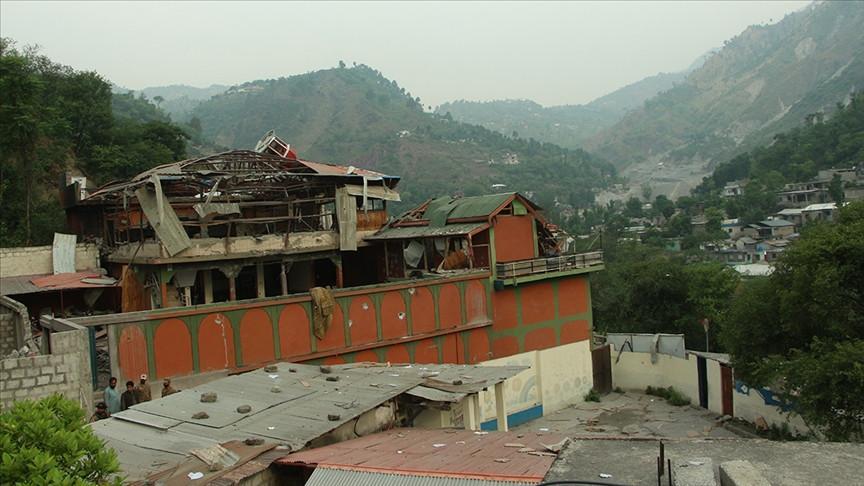
Islamabad rejected claims on May 8 by India that Pakistani forces attempted to engage Indian military targets on 15 locations.
“Pakistan, being a responsible state, has so far exercised strategic restraint, acted with maturity and limited its response strictly to self-defense,” Deputy Prime Minister and Foreign Minister Ishaq Dar said at a news conference alongside military spokesman Lt. Gen. Ahmed Sharif Chaudhry.
"Today they [India] issued a political motivated statement that Pakistan carried out an attack inside India,” he said. “We reject India's statement that Pakistan carried out actions inside India and targeted Indian military installations.”
Chaudhry also rejected the claims and said the "whole world will come to know" when Pakistan retaliates.
Chaudhry also said that Pakistani forces neutralized 29 Israel-made Harop drones fired by India overnight, calling it a "serious provocation."
He said three civilians were killed and four Pakistani soldiers injured in the attacks.
The Indian Defense Ministry said earlier that Pakistan attempted to strike military targets in the northern and western parts of the country with “drones and missiles,” which were “neutralized.”
It said debris from the attacks was “now being recovered from a number of locations that prove the Pakistani attacks.”
Pakistan said 31 victims were killed in the Indian missile attacks and cross-border firing, and vowed to retaliate.
Tensions between India and Pakistan escalated this week after India announced “Operation Sindoor” late night on May 6, saying it struck “terrorist infrastructure" at nine locations in Pakistan. Indian officials said New Delhi exercised its “right to respond and pre-empt as well as deter more such cross-border attacks.”
The strikes came after an attack in India-administered Kashmir late last month that killed more than two dozen victims, mostly tourists. Pakistan has denied any involvement in the attack.
Chaudhry also said that Pakistani forces neutralized 29 Israel-made Harop drones fired by India overnight, calling it a "serious provocation."
He said three civilians were killed and four Pakistani soldiers injured in the attacks.
Turkish President Erdoğan on May 8 said that Ankara is working to defuse the crisis between India and Pakistan before it hits "the point of no return, despite efforts by some to inflame it."
Hydropower attack
The countries issued diverging statements on May 8 about the attack on a hydropower project in Pakistan-administered Kashmir.
According to Islamabad, India "deliberately targeted" the Neelum Jhelum Hydropower Project in Pakistan-administered Kashmir during its airstrikes on May 7, which also hit several areas in Pakistan.
Retired Lieutenant General Sajjad Ghani, the head of the Water and Power Development Authority (WAPDA), paid a visit to the dam site and was briefed by local officials on the situation there.
"Indian shelling, which started at 1:15 a.m. on May 7, continued for about six hours till 7:15 a.m. Consequently, hydraulic power unit 1 of the intake gates was damaged in addition to the reinforced concrete structure at De-sander 1 and 3. Residential camp was also targeted, including ambulance and medical facility," the WAPDA said in a statement.
The Neelum Jhelum Hydropower Project was completed in 2018 on the Neelum River in Pakistan-administered Kashmir.
"The action assumes significance in the context of India's decision to suspend the Indus Waters Treaty and the attendant rhetoric about water flows to Pakistan," Foreign Minister Ishaq Dar told Islamabad-based foreign diplomats late May 7, according to the Foreign Ministry.
However, New Delhi on rejected Islamabad's statement the next day.
"India has only targeted the terrorist infrastructure... If such a claim is used as a pretext to target similar Indian infrastructure, Pakistan will be solely responsible for the unavoidable consequences," Indian Foreign Secretary Vikram Misri told reporters in New Delhi.
The hydropower project contributes 19.562 billion units of green and clean electricity to the National Grid, according to the WAPDA.